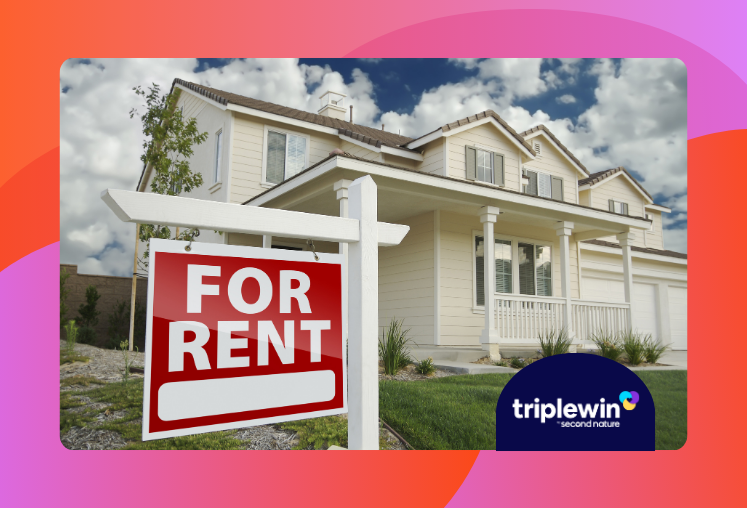What we'll cover
How to Value a Property Management Company: Contributing Factors
How to Calculate the Value of a PM Company: Valuation Multiples
Factors That Affect the Value of a Property Management Company
Increasing the value of a property management company before the sale
How to sell a property management company
How to buy a property management company
Conclusion
Putting a precise figure on the value of a property management company can be challenging, given the changeable nature of the market. That’s why understanding what goes into the value calculation is crucial for both investors and business owners.
Today, we’ll be discussing how property management company value is calculated, with an assist from Jock McNeill, VP of Acquisitions at PURE Property Management. Jock has completed over 70 property management acquisitions and has tons of insight into valuation models for property management companies.

How to Value a Property Management Company: Contributing Factors
Several factors help determine the value of a property management company, including revenue, profit margins, average rents, portfolio diversity, growth potential, and more.
You can think of these as success metrics in determining “What is my company valuation?” Here are the most important factors to consider.
1. Profitability
Before valuing a property management company, you need to determine profitability. Evaluate financial metrics like gross revenue, profit margins, cash flow or EBITDA, and debt-to-income ratios.
McNeill explains how they evaluate this at PURE: “We evaluate pro forma financial statements and arrive at a percent profitability based on adjustments we can make by removing ‘seller benefits’ such as vehicle leases, personal expenses, etc.”
Two of the biggest red flags in terms of a property management company's valuation, says McNeill, are “low revenue per door managed and low-profit margins. [These] can keep a business on the lower end of the valuation scale. These are often driven by low average rents and high labor costs.”
2. Consistency
Consistency is key in valuing a property management company. A company with "lumpy" financial growth is risky. Steady growth in profitability, on the other hand, shows reliability and may provide a reliable basis for projecting potential returns on investment. The same goes for employee turnover: a revolving door of staff suggests instability.
Similarly, consistent and well-organized records make a company more attractive to buyers (it facilitates due diligence processes and generally reduces the headache of taking over operations). In sum, consistency across finances, personnel, and records paints a picture of a well-run, predictable business, and that translates into higher value.
3. Portfolio churn
Portfolio churn tells a story about the company's ability to keep clients happy, which directly affects its future revenue stream and overall value.
High churn (i.e., with rental properties frequently leaving the portfolio) suggests difficulty retaining clients. This could be due to poor service, pricing issues, or a weak rental market. Low churn, with properties staying on board for extended periods, is an indicator of strong client relationships and high satisfaction – which reduces uncertainty for potential buyers.
4. Overhead costs
Overhead costs refer to indirect expenses required to keep the business running smoothly, but that are not directly related to managing specific properties. Examples include rent and salaries (excluding those assigned to specific properties), office supplies, marketing, and software subscriptions.
Expressed as a percentage of revenue, these overhead costs play an important role in a company's valuation. A lower overhead percentage of total revenue indicates a more efficient company that can generate profit without excessive spending. In turn, this can translate to higher potential returns for investors.
5. Debt-to-income ratio
Debt-to-income ratio (DTI) is a key metric of a property management company's value. It shows the balance between a company's debt (loans and outstanding payments) and its ability to generate income (revenue).
Lower DTI is better, as this indicates the company relies less on debt to operate. This suggests financial stability and a lower risk of defaulting on loans. A higher DTI, on the other hand, raises concerns about a company's ability to manage its debt burden. This can make it vulnerable to factors such as economic downturns, and cause investor hesitancy.
6. Customer concentration
Customer concentration, or how reliant a property management business is on a single large client, can significantly impact its valuation. If a large portion of the portfolio belongs to a single owner, the company's income virtually depends on keeping that client happy – and if the owner decides to switch property managers, this could represent a severe financial blow.
Property management companies with diversified portfolios are essentially spreading this risk thin, which is a plus for potential investors.
7. Transferability
Business transferability, or the ease with which a property management company can be sold to a new owner, is a crucial factor in its valuation. A company that has well-documented processes, a strong team, and a healthy client base is easier to transfer to new ownership than a company lacking clear documentation, or that relies heavily on a single key employee.
8. Specialization
Companies specializing in a specific type of property (e.g., single-family homes) develop deep expertise in that market. This expertise translates to better service for clients with that portfolio profile, potentially leading to higher client retention and satisfaction. Loyal clients are a valuable asset and boost a company's worth.
9. Contract terms
The contract terms of properties under management are another important consideration. Management contracts with longer terms and automatic renewals create a more predictable stream of recurring revenue for the company over a period of time. Property management fees are another important consideration. Stability is attractive to investors, as it makes future income streams steadier and more predictable.
Conversely, short-term contracts with frequent renegotiations introduce uncertainty about future rental income, potentially lowering valuation.
10. Future Growth Potential
And, of course, signs of growth potential are critical to a property management company's valuation. Many buyers are thinking about company value related to size.
According to McNeill, “Growth potential can influence how we approach a deal. If we can grow organically and quickly in a market, that can be very attractive. What a seller may perceive to be a problem in their business can be the acquirer’s opportunity. Maybe the issue is as simple as better systems, we can help with that.”
Growth potential can be in the form of the real estate market in the area, but also opportunities to grow the business with existing residential properties.
It’s also key to see a demonstrated network within those key markets. Property management is still largely driven by personal contacts and business relationships. Having strong contacts and connections in key markets is an important sign of growth potential.
How to Calculate the Value of a Property Management Company: Valuation Multiples
Valuation multiples are a key tool for determining the fair market value of a property management firm because they leverage comparable market data to establish a standard for pricing. We’ll cover the basics and provide some examples.

Property Management Company valuation multiples to consider
Property management company valuation multiples compare key financial metrics such as earnings or revenue, to the market value of similar companies that have recently been sold. When using valuation multiples, the caveat is that it's important to compare companies that are truly similar in terms of size, clientele, and service offerings.
Three common types used for property management companies are SDE (seller’s discretionary earnings) multiples, EBITDA (earnings before interest, taxes, depreciation, and amortization) multiples, and revenue multiples.
SDE multiples for a property management company
The SDE (Seller's Discretionary Earnings) multiple focuses on the cash flow available to the business owner after accounting for all business expenses and taxes (excluding owner salaries and perks).
The SDE times its multiple is one way of representing the value of a business. A higher SDE indicates a more profitable company, and the SDE multiple applied will reflect that. In the property management industry, a company with a strong track record of SDE might command a higher SDE multiple (say, 2.5-3 times SDE) compared to a less profitable company (say, 1.5-2 times SDE).
An established company with steady profitability might be valued at 2.5 times its SDE. If its SDE is calculated at $1 million, this would result in an SDE x 2.5 = $2.5 million business valuation.
EBITDA multiples for a property management company
The EBITDA multiple is similar to the SDE multiple but excludes non-cash expenses like depreciation and amortization, and also ignores owner compensation.
A growth-oriented company might be valued at 6 times its EBITDA. If its EBITDA is calculated at $700,000, this would result in an EBITDA x 6 = $4.2 million valuation.
Revenue multiples for a property management company
Revenue multiples simply take a company's total revenue and multiply it by a factor to arrive at a valuation. For example, a rapidly growing company with a revenue of $2 million might be valued at 2 times its annual revenue, resulting in a $4 million valuation.
What multiple should you consider when valuing a property management company?
No one multiple tells the full story. It is, after all, just an indicator, and cannot predict the future.
That said, revenue multiples are a less common metric for property management companies compared to SDE or EBITDA multiples, given that revenue alone doesn't reflect profitability. Indeed, this multiple is often used in conjunction with other multiples for a more accurate picture.
Valuators of property management companies are more likely to use EBITDA multiples alongside SDE multiples to get a more comprehensive view.
Factors That Affect the Value of a Property Management Company
A property management company's value is typically influenced by a variety of factors reflecting its operational structure, market position, and potential for future growth. These elements can provide insight into the overall stability and attractiveness of the business.
Below is an overview of some key factors that can significantly impact a company's valuation.
Owner involvement
The role the owner plays in the day-to-day operations is crucial. A business that's heavily reliant on its owner may be less appealing to potential buyers because of the challenges involved in transitioning leadership. If the owner is deeply involved in tasks like managing client relationships or handling property issues, the company may struggle to maintain operations after a sale. Conversely, businesses where the owner plays a more passive role and has a solid management team in place are easier to transfer, which makes them more attractive and valuable.
Number of units
The number of units under management is one of the most straightforward indicators of a property management company's scale. Larger portfolios generally signal greater revenue potential. However, it’s not just about numbers; the quality of management across these units also matters. Naturally, a company that's managing a significant number of units efficiently, with minimal client turnover and satisfied property owners, is seen as more valuable than one managing the same number with operational inefficiencies.
Types and quality of properties
The types of properties under management can directly impact revenue and client retention. For example, a company managing high-end, well-maintained properties will typically have more stable clients and higher margins. On the other hand, a focus on lower-quality properties, especially those in difficult-to-manage areas, can reduce profitability due to increased maintenance demands and tenant turnover. Diversifying the types of properties under management can also reduce risk, contributing positively to valuation.
Contracts
The structure and length of management contracts are another clear indicator of future revenue stability. Companies with long-term contracts in place, especially those with automatic renewal clauses, can offer a more predictable and consistent revenue stream. This makes the business more appealing to buyers who value income security. Short-term contracts or those frequently renegotiated, on the other hand, introduce uncertainty, which can detract from the overall value.
Expansion opportunities
Any company’s potential for future growth is always a key consideration for buyers. A business located in a growing real estate market, or one with untapped opportunities to expand its portfolio, can be significantly more attractive. Expansion can come in the form of geographic growth into new markets or by adding additional services to existing clients, such as maintenance or leasing services. The ability to grow without significant capital investment inevitably increases the company's appeal and overall value.
Location
The location of the company can affect its valuation in different ways. Businesses in high-demand real estate markets or rapidly growing areas often see higher valuations, as market conditions are favorable for both current operations and future growth. On the other hand, property management companies in regions with stagnant or declining real estate markets may face a tougher path to maintaining value or increasing it.
Business tenure
The length of time a company has been in operation is often an indicator of its stability and credibility in the market. A property management company with a long track record is usually viewed as more reliable, especially if it has built a strong reputation for service and client satisfaction. Newer companies may struggle to command the same valuation, as they lack the historical data that provides insight into their ability to weather market fluctuations.
Increasing the value of a property management company before the sale
For owners of a PMC looking to sell, your first goal is obviously to increase the value of your business as much as possible before the sale, in order to increase the eventual purchase price.
Keep in mind, though, that increasing your company value doesn’t need to become a barrier to selling. In fact, McNeill warns not to be too perfectionistic on that front.
“One of the biggest misconceptions is that valuation is only based on revenue, and you have to have your business in perfect condition to sell,” McNeill says. “There are many factors that influence valuation, but for PURE, revenue and profit margins are most important. We’ve also seen a lot of potential sellers stall in early discussions because they want to wait to get their shop in order, implement new initiatives, or clean up their books. It isn’t always necessary, and trust me, we’ve seen it all.”
Here are some industry tips for increasing your PMC’s value to buyers or property owner investors.
Invest in your business infrastructure
By this, we mean that you should invest in technology and people. Reinvesting in your business will make it healthier and more valuable to potential investors.
On the tech side, you could adopt new property management software, update your current tech infrastructure, or integrate the newest AI-enabled tools.
On the people side, you don’t necessarily need to hire more employees. Rather, ensure that the people on your team are as equipped as possible. Invest in excellent recruiting and onboarding processes, ensure you have robust training programs, etc.
Integrate ancillary services
We’ve talked a lot on our blog about how to develop ancillary programs to drive income. Ancillary fees aren’t just a cash grab – they’re a way to add needed value for residents and investors while driving profit for your PMC.
Ancillary property management services can include things like:
- Renter’s insurance programs
- Credit-building
- Supportive services like air filter delivery
- Resident rewards
- And more!
One of the best value-added services is to integrate a resident benefits package into your program.
Develop marketing strategies
You should be able to show potential investors that you have a strong marketing plan that has proven to grow your business over time. Your marketing strategy should include a content plan, distribution, social media strategies, networking events, and more.
Pay attention to things like your reviews and online reputation as well. Marketing your property management company well will pay off in dividends when you are ready to sell.
How to sell a property management company
Completing a thorough valuation is just the first step in selling a property management company. If you’ve done the work to value your PMC, the next steps will be much easier.
Whether you're looking to retire or simply move on to a new business venture, selling your property management company requires careful planning and execution – with the following steps.
Identify potential buyers
The next step after valuing your PMC is to identify potential buyers. The field of possible buyers may include other property management firms in your area, real estate investors, or even individual buyers looking to enter the industry.

Determine how you want to sell
In his article on valuing your PMC, Lohmann outlines the two different transaction types in how a property management company can be purchased:
- A stock sale. In a stock sale, the buyer will purchase shares of your business. They take on all past liabilities of your company but also get to hold onto your brand, contracts, and vendor relationships. The depreciation of long-lived assets is not reset.
- Asset sale, also known as Goodwill. In this case, the buyer buys your “book of business.” They’re paying for the property management agreements or contracts your PMC holds. If any of your contracts aren’t assignable, you’ll need to get an individual agreement from those investors.
Prepare your PMC for a sale
Next, you'll want to prepare your property management company for sale. This may include making necessary upgrades to your facilities, improving your management processes, and ensuring that all financial records are up-to-date and accurate.
According to McNeill, the question you should ask yourself is: “How can I best tell the story of my company to a potential buyer? Are my financials detailed, and can I show a buyer I have great margins (or how they can achieve them)?”
Work with a qualified broker or attorney
Finally, when it comes time to negotiate a sale, it's important to work with a qualified business broker or attorney who can help you navigate the complex legal and financial aspects of the sale. With their guidance, you can ensure that you get the best possible price for your property management company while also protecting your interests and ensuring a smooth transition of ownership for your employees and clients.
How to buy a property management company
But what if you’re on the buying side? Buying a property management company can be a great investment opportunity, but you can’t sleep on due diligence. Before you start the process of purchasing a property management company, there are several key steps you should take to ensure that you make an informed and profitable decision.
Research thoroughly & find a PMC that fits
The first step in buying a property management company is–like with anything–to do your homework. Thorough research on PMCs involves identifying potential acquisition targets, analyzing their financial performance, and evaluating their market position.
You'll want to look at factors such as revenue growth, profit margins, and client retention rates, as well as any potential growth opportunities that may make the company more valuable in the future. Basically, everything we covered in the sections above!
If you already run a PMC, you want to make sure the business model can integrate with your structure. But again, McNeill cautions against being too rigid on this one.
“We have yet to see a company that does everything the PURE way after over 60 acquisitions. Our partner integration team jumps in quickly and has a plan in place before we close a deal. If a seller has already implemented similar ancillary revenue models, such as a resident benefit package, etc., it means we can optimize that faster than rolling it out from scratch. Our proven platform includes the people, processes, relationships, and technology to consolidate, tech-enable, and optimize the companies we acquire carefully and thoughtfully. We have an all-star team of industry insiders, innovators, and leaders already in place, so when we bring on new teams, the integration is pretty smooth.”
Conduct due diligence and identify liabilities
Okay, so let’s say you’ve identified a potential PMC you’d like to buy. Now it’s time for due diligence. This involves reviewing financial records, contracts, and legal documents to ensure that there are no hidden liabilities or risks associated with the company. Additionally, you'll want to evaluate the quality of the company's management team, as well as its operational processes and systems.
Determine fair market value
After completing the due diligence process, you'll need to determine the fair market value of the property management company. This involves taking into account a range of factors, including its current and projected financial performance, market position, and growth potential. Once you have a clear understanding of the company's value, you can begin the negotiation process with the seller.
Work toward a smooth transition
Finally, once the sale is complete, it's important to take steps to ensure a smooth transition of ownership. This may involve working with the existing management team to establish clear roles and responsibilities, as well as communicating with clients and stakeholders to ensure that they are aware of the change in ownership.
According to McNeill: “A buyer should make sure they have the foundation in place to integrate an acquisition into their existing operation. Look for opportunities to add value for the clients and residents, and that will turn into value for you as a buyer. Anything you can do to create a simple and satisfying experience for clients and residents will help with the anxiety that can come with a sale.”
Conclusion
Ultimately, the value of a property management company will depend on a range of factors, and there is no one-size-fits-all approach to valuation. But the bottom line is that by following a structured and analytical approach, you can feel confident in your valuation, which will help you make informed decisions about buying or selling the business.
Whether you're a business owner looking to sell your property management company or an investor looking to make an acquisition, a proper valuation is essential to ensuring a successful transaction.
Topics:




